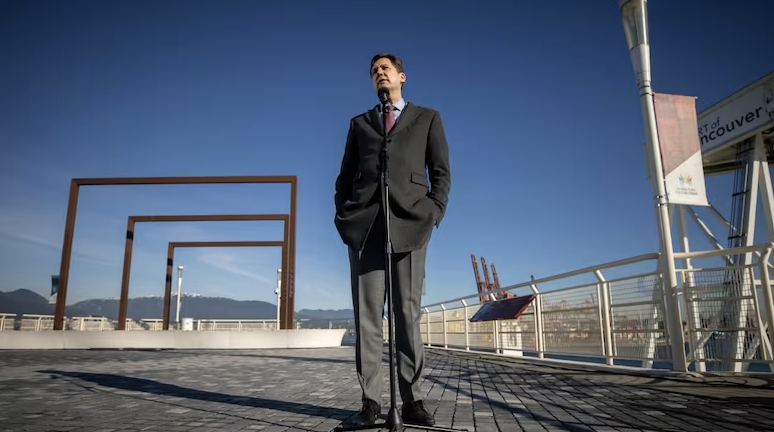David Eby Joins Canadian Premiers in Washington to Challenge U.S. Tariffs
Noah Chen
2/12/20252 min read


B.C. Premier David Eby says Canada’s trade relationship with the U.S. has permanently changed, as he joins a delegation of provincial premiers in Washington, D.C., to challenge the recently imposed tariffs on steel and aluminum.
Speaking before his departure, Eby said Canada had been “too reliant” on the decisions of one person in the White House and that this experience will force the country to diversify its trading partners.
"We took our relationship for granted," he said. "But the world needs what we have, and we will emerge stronger from this."
The trip follows Trump’s decision to impose 25% tariffs on all Canadian steel and aluminum imports and his temporary pause on broader tariffs set to be decided by March 4.
Eby Calls Tariff Threats a ‘Declaration of Economic War’
Eby has strongly criticized the U.S. measures, calling them a “declaration of economic war against a trusted ally” and “a complete betrayal” of Canada-U.S. trade ties.
"This is a Republican-led initiative against Canada," he said, emphasizing the importance of directly engaging with U.S. lawmakers, particularly Republicans, to explain how the tariffs will hurt both countries.
Trade Diversification and Economic Security
In response to the tariffs, the B.C. government has rolled out a series of economic measures, including:
Fast-tracking 18 critical mineral and energy projects
Establishing a trade and economic security task force
Launching a cabinet-level “war room” to protect B.C. workers and businesses
Eby said the province is also working with major exporters, including aluminum producer Rio Tinto, to secure new markets beyond the U.S..
Potential Job Losses and Economic Fallout
While B.C. has a more diversified economy than some other provinces, there are concerns that the tariffs could trigger job losses and economic instability.
B.C. had initially planned a retaliatory ban on U.S. liquor and government contracts, but those measures were paused after Canada negotiated a one-month reprieve at the federal level.
Still, the trade dispute has fueled a surge in Canadian retail patriotism, with governments urging consumers to buy Canadian-made goods in response to the U.S. tariffs.
As negotiations unfold in Washington, the Canadian delegation hopes to convince key decision-makers that the tariffs will hurt American workers just as much as Canadian industries—but whether that message will resonate remains to be seen.
News
Stay updated with the latest BC news stories, subscribe to our newsletter today.
SUBSCRIBE
© 2025 Innovatory Labs Inc.. All rights reserved.
LINKS
